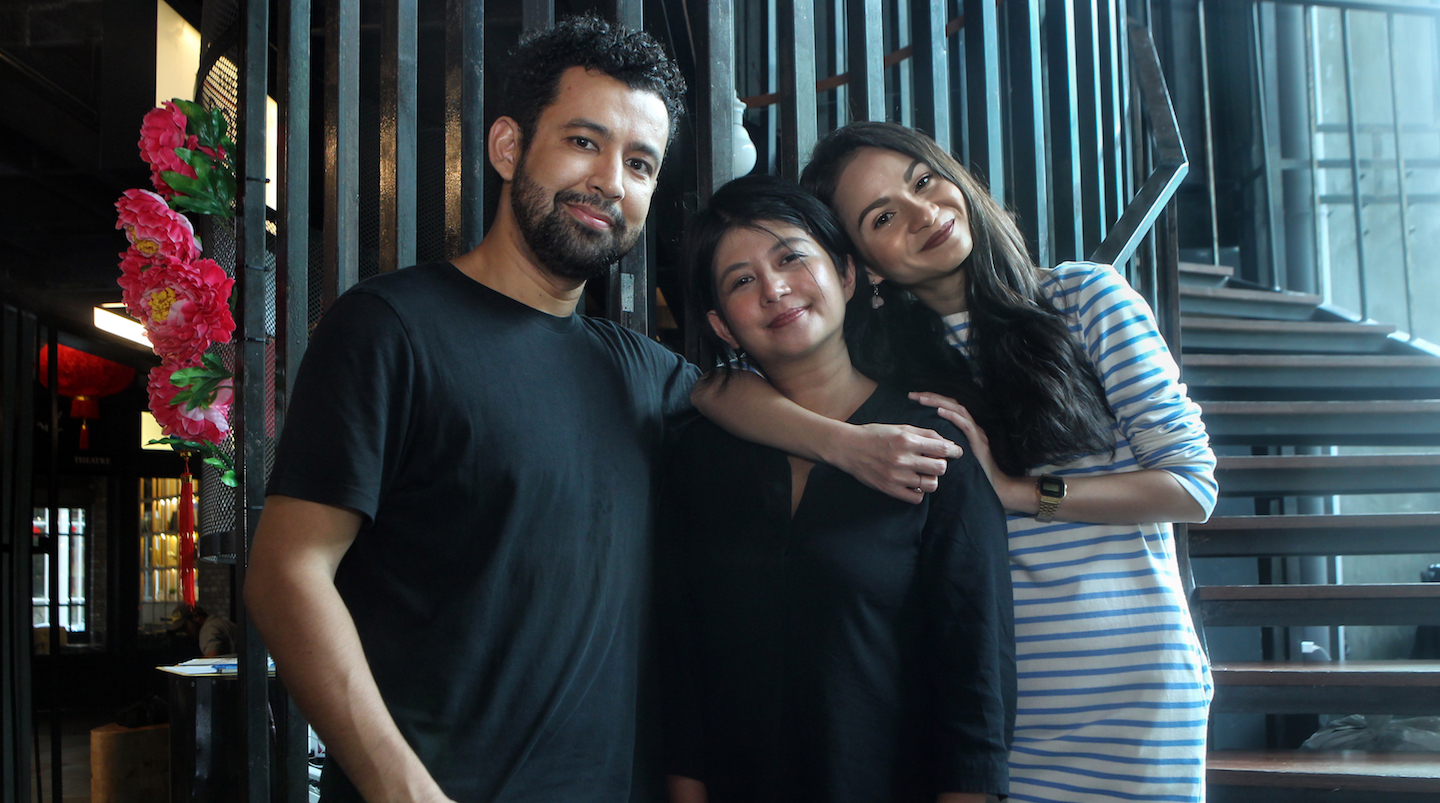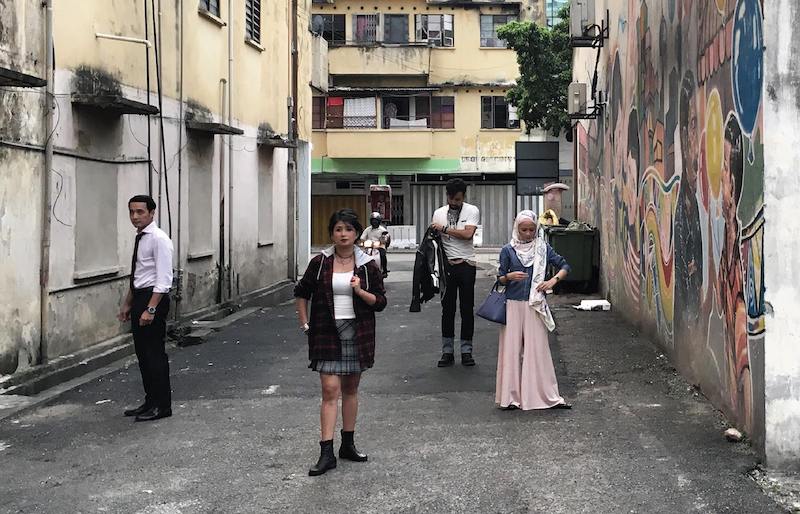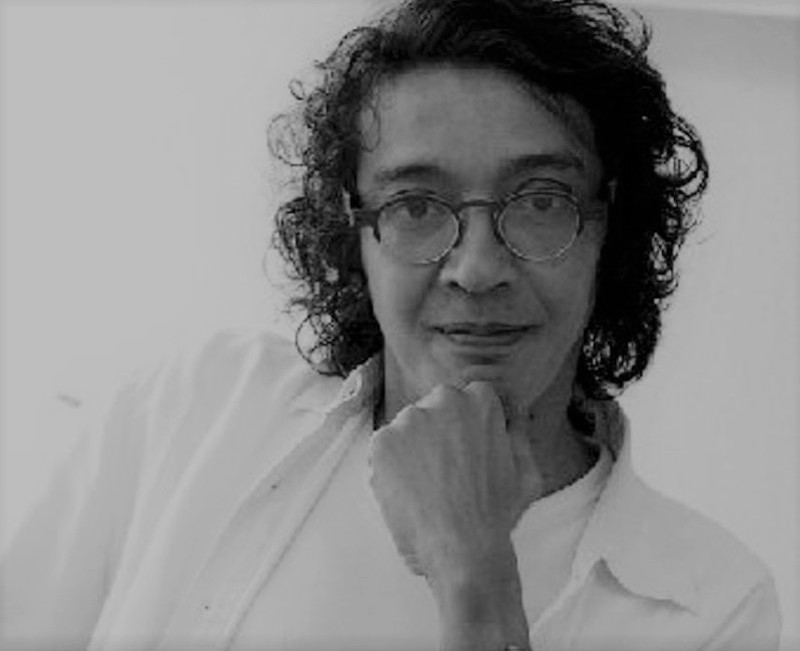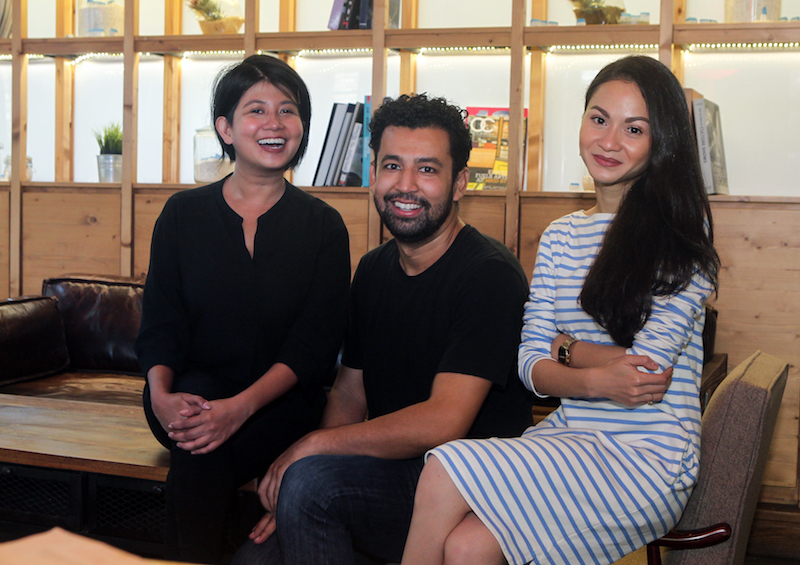
The talented cast, comprising (from left) Ghafir Akbar, Farah Rani and Sharifah Amani, all jumped at the chance to be part of the production (Photo: Kenny Yap/The Edge)
What a treat it was to learn that a Jit Murad play would be staged at the Damansara Performing Arts Centre (DPAC). Gold Rain & Hailstones is the first full-length play written by the acclaimed Malaysian playwright, which debuted in 1993 to great response and accolades.
Last performed over a decade ago in 2006, when Jit was still active on the local theatre scene, the play will feature, for the first time, a cast of four. Past productions had always starred Jit and another actor playing multiple roles. The opening production is, coincidentally, also in celebration of Instant Café Theatre’s 30th anniversary, further burnishing the company’s reputation and proven track record for Malaysian theatregoers who have been anticipating Jit’s return to the stage.
But for director Gavin Yap, the play is a recent discovery. He learnt about it from a copy of Jit Murad’s collection of plays after the performance of Zahim Albakri’s Shadow In The Sun in 2017. Incidentally, Zahim is one-half of the artistic force behind DramaLab — the other being Jit — and the director of most of the playwright’s works.
Marking the first time a different director is at the helm, Yap says it is ripe for Malaysians to be reintroduced to Jit’s brilliant works. “I had heard of Gold Rain, but it was the one Jit Murad play that I had not watched or read before. So it was like a ‘new’ discovery for me and I knew I had to do it… I felt I knew the characters, I could see myself in them and relate to them even though they were Malay characters. That’s the ability that Jit has.”

Inspired by the Malay idiom that loosely translates into — Even if it rains gold in another country, the hailstones at home are still preferred — it relates the return of the outspoken and “liberal” Amy from the US, after a decade away, due to her father’s illness. She reenters the lives of best friends Nina, Jay and Man, all of whom also studied abroad together but came home a few years earlier and are now an upper-class wife and mother, a celebrity make-up guru and successful “Melayu Baru” man respectively. Amy’s presence and struggle to fit in brings chaos, along with questions about their choices, as to what it means to be who they are in this country.
The talented cast, comprising Sharifah Amani, Farah Rani, Ghafir Akbar and Redza Minhat, all jumped at the chance to be part of the production. Options sat down with three out of the four for a chat about what Gold Rain & Hailstones means to them (Redza could not attend due to work commitments).
“It was ‘yes’ to everything for me,” says Amani, “My parents were in the theatre line as well, and I first saw Gold Rain in the nineties, yes, I was very young. He was my ‘uncle’, my first ever film role was to sit on his lap, playing a three-year-old Palestinian kid in Selubong. I grew up with Jit Murad … he also introduced [me] to the late Yasmin Ahmad. So you don’t say ‘no’.”
jit_murad.jpeg

Ghafir says he practically threatened Yap to let him read for the show when he got wind that the latter was thinking about directing it. Similarly, Farah — who had worked with Ghafir and Yap in The Language Archive — immediately asked for the performance dates so she could lock it down in her calendar.
Their excitement also stemmed from how the play’s characters resonated with them. “As an English-speaking Malay, these characters are basically me. And it was written with so much heart and depth. They are not all the same kind of English-speaking Malay person, [but] they have very different points of view, such strong perspectives,” says Farah.
Amani chimes in, “Why I like the play so much is that there’s not actually a jahat-jahat or baik-baik kind of person. They lose their temper, say nasty things and things they are not proud of. But don’t we all?”
They are cognisant of the timeliness of this spotlight on identity and race, particularly for the Malay community, against the backdrop of this “Malaysia Baru”.

“We are all products of our upbringing, one that comes with a history of migration and colonisation. But as these characters show in their grappling with who they are, whose way is right? Am I less Malay if I don’t speak it [Bahasa]? Or if I have mixed heritage? Again, it is about identity. Are you less Malaysian if you have liberal thoughts on Palestine, for example? Suddenly you cannot have opinions, even though everything we celebrate about Malaysia comes from diversity. Why then can’t we have diversity in thought as much as we have diversity in our food and skin colour?” Ghafir observes.
“I think I have never felt as threatened to be the kind of Malay I am, than I do now,” Farah admits, “For so long, we have imposed a simplified, vague identity of race so we feel more homogenous, but as my character Amy says, if it’s working, how come it’s getting more and more fragile? And this idea of Malay people feeling like their identity is being threatened or taken
away … this fear means that this conversation is more relevant than ever.”
And it is one that has been ongoing from before the play was even written. “The vocabulary may have evolved, but the conversation itself is still the same,” notes Yap.
As a way of holding up an invisible mirror to show how far we have come, or perhaps how we have not, the director has been resolute about keeping the original text and timeline intact to achieve that, though some editing for length and removal of outdated or irrelevant references has been done.
“I think Gavin had carefully curated [the] time references to give a sense of the period, but not bombarding our senses or memories with nostalgia or sentimentality. Because that’s not what it’s about,” says Ghafir.
Nevertheless, Yap describes Jit’s unique structure for Gold Rain as cinematic and episodic, not to forget comedic, with regular jumps between the past and present in somewhat surrealistic scenes. It is definitely not just four people sitting around talking, as the cast points out.
But what they do talk about — encompassing issues of displacement, of the paths where our choices take us, of change and of how we respond to it — are universal and timeless. “The word that I keep thinking of is ‘homecoming’. These characters come back, find their country different and we see how they respond to those changes. But it does not just apply to those who have gone overseas. Anyone who has experienced something different, or had a life-changing moment, I think, can identify with this idea of ‘what now?’,” says Ghafir.
It will be interesting to see how concerns written two decades ago are still relevant today, particularly in the information-filled world that we live in now. Will we identify with how Amy, Nina, Jay and Man respond to the country’s sociopolitical changes?
You may be surprised, the cast says. “Jit mentioned in one of his early interviews that when he wrote this play, Tun Dr Mahathir Mohamad was in power. So the resonance then was to his governing. But now he is back in power again,” quips Ghafir, “He’s made his own homecoming, back to Putrajaya ... is there a better time to stage it?”
'Gold Rain & Hailstones', Theatre, DPAC, Empire Damansara. Until Mar 10. RM50-150. See here for ticketing details.


